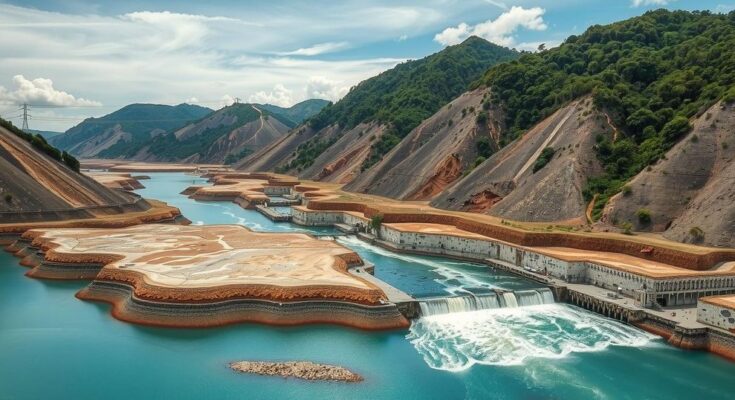Ecuador is experiencing severe energy shortages due to a drought that has caused a reliance on hydroelectric power to become unsustainable. Daily blackouts of up to 14 hours are disrupting daily life and costing the economy around $12 million per hour. Experts advocate for the diversification of energy sources to mitigate risks posed by climate change and improve energy stability in the future.
Ecuador is currently confronting a profound energy crisis, driven by a severe drought that has drastically reduced water levels in critical rivers and reservoirs. This situation has resulted in up to 14-hour daily blackouts, significantly impacting the nation’s hydropower-dominated electrical grid. As businesses, schools, and essential services endure interruptions, the economic burden is mounting—with estimates revealing that each hour of power outage incurs losses of approximately $12 million.
The situation has drawn the attention of experts who emphasize the imperative of diversifying energy sources in the face of escalating climate change threats. The excessive reliance on hydroelectric power has exposed the system to vulnerabilities inherent in climate variabilities, particularly drought conditions. Therefore, there is a pressing call for investment in alternative energy infrastructures, such as wind and solar, to bolster the country’s energy resilience and lessen future risks.
In reflection, the current crisis serves as a critical warning about the pitfalls of an energy framework heavily weighted toward hydroelectricity. A balanced energy portfolio may be the key to ensuring stable and reliable energy access in an increasingly unpredictable climate.
Ecuador has historically depended on hydroelectric power to address its energy needs, which has led to a narrow focus on a single source of power generation. This dependency has proved to be a double-edged sword, as recent droughts have drained vital water supplies necessary for hydropower production. Climate change is projected to exacerbate such extreme weather events, making reliance on hydropower increasingly precarious. Consequently, nations like Ecuador are urged to reassess their energy strategies to include more diverse and sustainable options.
In conclusion, Ecuador’s energy crisis highlights the significant risks associated with over-reliance on hydroelectric power amidst increasing climate variability. As the drought continues to deepen, it is evident that a diversified approach to energy sourcing is essential for ensuring economic stability and resilience against climate change. Emphasizing the need for investment in renewable alternatives will not only safeguard Ecuador’s energy future but also provide a blueprint for other vulnerable nations.
Original Source: www.dailyclimate.org




